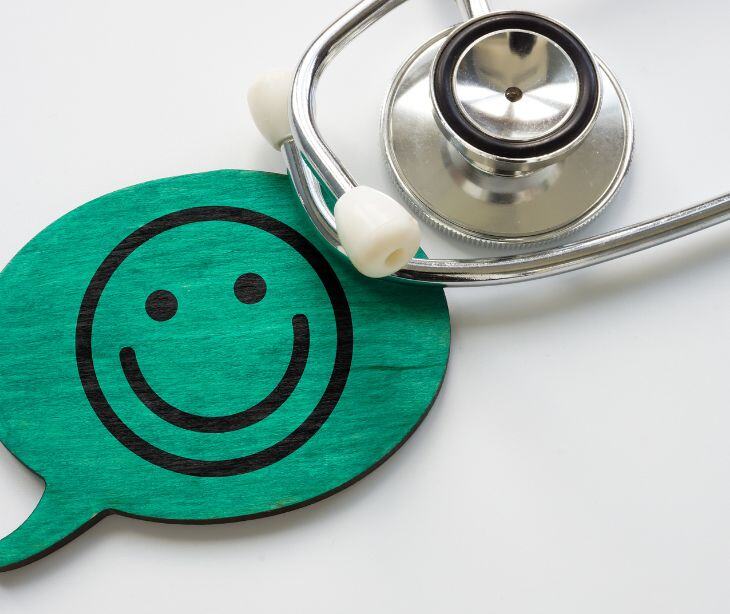
The third installment of our Mental Health Awareness Month series for healthcare professionals focuses on developing effective consultation practices with mental health specialists while navigating HIPAA requirements that govern these collaborations.
The current state of mental health consultations
Mental health care in the US faces significant challenges, including limited access to services, shortages of professionals, and systemic barriers. Key statistics include:
- Prevalence and treatment gaps: Approximately 59 million US adults were living with a mental illness in 2022, yet just over half received treatment in the prior year.
- Access to care: A "secret shopper" study found that less than 18% of psychiatrists listed as in-network for Medicaid were available to provide new patient appointments.
- Workforce shortages: Only about 18.5% of psychiatrists were available to see new patients, with median wait times of 67 days for in-person appointments and 43 days for telepsychiatry.
- Insurance acceptance: Psychiatrists are more than twice as likely to accept new self-pay patients than new Medicaid patients, limiting access for those with public insurance.
- Referral system challenges: A number of U.S. adults (approximately 74%) are comfortable discussing mental health with their primary care providers, yet about one-third report never being asked about it during routine checkups.
- Stigma and cultural barriers: Stigma surrounding mental health continues to be a barrier, with many individuals hesitant to seek care due to societal perceptions and personal concerns.
HIPAA and mental health information sharing
Information exchange for mental healthcare involves several specialized HIPAA provisions and exceptions that every healthcare professional should understand. As the HHS resource "HIPAA Privacy Rule and Sharing Information Related to Mental Health" recognizes, "In recognition of the integral role that family and friends play in a patient's health care, the HIPAA Privacy Rule allows these routine – and often critical – communications between health care providers and these persons."
The importance of privacy in mental healthcare cannot be overstated. As noted in "Digital privacy in mental healthcare: current issues and recommendations for technology use," "Mental healthcare has long held that privacy and confidentiality are primary in the service of clients" and "Without privacy and confidentiality, therapy may not be effective."
1. The treatment, payment, and healthcare operations (TPO) exception
HIPAA permits disclosure of protected health information (PHI) without specific patient authorization for treatment purposes, including consultation with other providers. Specifically, the HHS resource states that "HIPAA permits health care providers to disclose to other health providers any protected health information (PHI) contained in the medical record about an individual for treatment, case management, and coordination of care and, with few exceptions, treats mental health information the same as other health information." However, this general exception has important limitations for mental health information:
- Psychotherapy notes require specific authorization even for treatment purposes
- Substance use disorder records governed by 42 CFR Part 2 generally require specific authorization
- State laws may provide additional restrictions beyond HIPAA requirements, particularly for certain mental health conditions
Related: Privacy protection for psychotherapy notes
2. Minimum necessary standard application
When sharing mental health information under treatment exceptions, the minimum necessary standard requires particular attention:
- Share only the specific information needed for the consulting provider to offer appropriate guidance
- Consider whether diagnosis, medication history, and current symptoms are sufficient, or if more detailed history is clinically necessary
- Avoid transmitting full mental health evaluations when targeted information would suffice
- Document your rationale for determining what constitutes the "minimum necessary" information
Related: How to determine the minimum necessary information
3. Special provisions for emergency situations
HIPAA includes exceptions that permit disclosure without authorization in emergency circumstances:
- To prevent serious and imminent harm to the patient or others
- To facilitate emergency treatment when the patient cannot provide consent
- To essential caregivers when the patient lacks capacity due to psychiatric conditions
As the HHS resource states, "The Privacy Rule permits a health care provider to disclose necessary information about a patient to law enforcement, family members of the patient, or other persons, when the provider believes the patient presents a serious and imminent threat to self or others." Importantly, "HIPAA expressly defers to the professional judgment of health care professionals when they make determinations about the nature and severity of the threat to health or safety... HIPAA presumes the health care professional is acting in good faith in making this determination."
These exceptions require careful documentation of:
- The specific emergency circumstances necessitating disclosure
- The information disclosed and recipients
- The clinical rationale for determining disclosure was necessary
Related: Understanding permissible disclosures in an emergency
4. Patient-directed disclosure limitations
Patients may authorize disclosure of their mental health information while placing limitations on what is shared. These partial authorizations must be respected and can include:
- Restrictions on specific diagnoses or treatment episodes
- Limitations on disclosure of medication information
- Exclusion of certain historical events or symptoms
- Time limitations on the information disclosed
Special consideration must be given to situations involving medication adherence. The HHS resource clarifies that "If a health care provider knows that a patient with a serious mental illness has stopped taking a prescribed medication, [the provider] can tell the patient's family members... so long as the patient does not object."
When patients lack capacity to make decisions, the same HHS resource notes that "Where a patient is not present or is incapacitated, a health care provider may share the patient's information with family, friends, or others involved in the patient's care... as long as the health care provider determines, based on professional judgment, that doing so is in the best interests of the patient."
Consultation models that enhance HIPAA compliance
Several consultation models facilitate both clinical effectiveness and streamlined HIPAA compliance.
1. Project ECHO model
The Extension for Community Healthcare Outcomes (ECHO) model uses technology to leverage scarce specialist resources:
Operational structure:
- Hub-and-spoke knowledge-sharing networks
- Case-based learning for complex conditions
- Virtual clinics with didactic presentations and case reviews
- Community of practice development
HIPAA compliance features:
- De-identified case presentations
- Educational rather than direct clinical guidance format
- Documentation as educational activity rather than consultation
- Reduced need for patient-specific information sharing
2. Psychiatric consultation-liaison services
An article published by the Academy of Consultation-Liaison Psychiatry shows the effectiveness of proactive consultation-liaison (C-L) psychiatry models in hospital settings. These models involve early integration of psychiatric teams into patient care, leading to improved outcomes such as reduced hospital length of stay and better patient and clinician satisfaction .
Service elements:
- Rapid response to consultation requests
- Structured consultation note templates
- Clear recommendations with implementation guidance
- Educational component for requesting providers
- Follow-up availability for recommendation adjustment
HIPAA integration:
- Single covered entity simplifies information sharing
- Shared EHR documentation streamlines communication
- Consultation becomes part of unified medical record
- Reduced transmission risk through internal-only communication
3. Stepped care consultation models
El Futuro, a nonprofit mental health organization in North Carolina, has implemented a stepped care model to enhance mental health service delivery. This approach matches clinical needs to appropriate resources, ensuring that patients receive the least intensive, yet effective, intervention first, with the ability to escalate care as needed.
Approach:
- Initial evaluation determines appropriate treatment level
- Systematic escalation protocols for insufficient response
- Regular outcome monitoring guides treatment adjustments
- Specialist consultation reserved for complex or treatment-resistant cases
HIPAA advantages:
- Treatment within same provider organization when possible
- Reduced cross-organization referrals minimize disclosure needs
- Registry tracking within single entity simplifies monitoring
- Standardized communication protocols enhance compliance
Technology solutions for HIPAA compliant collaboration
Technology platforms facilitate HIPAA compliant mental health collaboration. However, there are challenges for maintaining privacy. As highlighted in Digital privacy in mental healthcare, "the implementation of these advancements in mental healthcare involves consequences to digital privacy and might increase clients' risk of unintended breaches of confidentiality."
1. Electronic consultation systems
Structured eConsult platforms offer several HIPAA compliance advantages:
System features:
- Secure messaging infrastructure
- Templates ensuring appropriate information inclusion
- Integration with EHR documentation
- Automatic audit trail creation
Implementation considerations:
- BAA requirements with technology vendors
- Staff training on appropriate information sharing
- Integration with existing workflow systems
- Documentation of transmission security measures
Read also: Technology in healthcare
2. Shared care plans
Electronic shared care plan systems enhance coordinated care:
Functionality:
- Centralized treatment goals and interventions
- Role clarification among multiple providers
- Progress tracking visible to authorized team members
- Patient access to their own care plan information
HIPAA safeguards:
- Granular permission settings controlling information access
- Patient-directed access controls
- Authentication requirements matched to sensitivity
- Comprehensive audit capabilities
Read also: How health plans can share PHI for care coordination
3. Patient-controlled sharing platforms
Emerging technologies place patients in control of their information:
Approaches:
- Patient-controlled health records with selective provider access
- Digital consent management systems
- Personal health record integration with provider EHRs
- Patient-directed information exchange permissions
Compliance benefits:
- Reduces covered entity disclosure responsibility
- Creates clear documentation of patient preferences
- Simplifies authorization processes
- Supports patient engagement in care coordination
Learn more: HIPAA compliant email
Special considerations for psychotherapy notes
Understanding the unique protections for psychotherapy notes is important for mental health collaboration. According to the HHS resource, "Psychotherapy notes are treated differently from other mental health information both because they contain particularly sensitive information and because they are the personal notes of the therapist... the Privacy Rule requires a covered entity to obtain a patient's authorization prior to a disclosure of psychotherapy notes for any reason, including a disclosure for treatment purposes."
This distinction is important because psychotherapy notes are separate from the standard medical record and contain the therapist's personal observations and analysis from counseling sessions. Unlike other mental health information that can be shared for treatment purposes under the TPO exception, psychotherapy notes require specific patient authorization even when sharing with other healthcare providers for treatment coordination.
Digital security considerations for mental health technology
The increasing reliance on technology in mental healthcare requires heightened attention to security measures. According to Digital privacy in mental healthcare, "16.8% of security breaches reportedly occurred due to the loss/theft of a smartphone," This shows the importance of implementing security protocols for all devices and platforms used in mental health consultation and communication.
Providers should be particularly cautious about claims of HIPAA compliance. As further noted in the article, "'HIPAA compliant' is not a regulated or certified term by the Department of Health and Human Services." This means that mental health professionals must thoroughly evaluate the security features and business associate agreements of any technology platform used for consultation or communication.
FAQs
Are HIPAA rules different for minors receiving mental health services?
Yes, parental rights and state laws often influence disclosure rules for minors' mental health records.
Does HIPAA allow texting between providers about a patient’s mental health?
Only if the texting platform is secure, encrypted, and meets HIPAA security rule requirements.
What if a patient refuses to allow any mental health information to be shared?
Their wishes must be respected unless an emergency or specific legal exception applies.
Can providers discuss a patient’s mental health in a group consultation setting?
Only if the patient's identity is protected or consent has been obtained for identifiable disclosures.
How does HIPAA apply to mental health apps used by patients?
Apps may not be HIPAA-covered entities unless they share data with healthcare providers or insurers.
Subscribe to Paubox Weekly
Every Friday we bring you the most important news from Paubox. Our aim is to make you smarter, faster.




